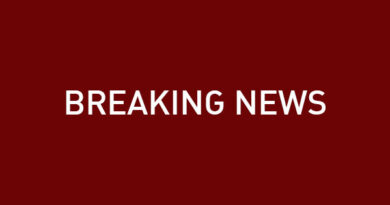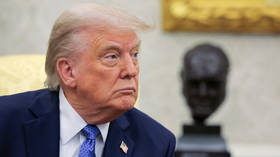Kremlin Confirms Putin Raised Retaliation to Ukraine’s Airbase Attacks in Conversation With Trump

The Kremlin confirmed Thursday that President Vladimir Putin told U.S. President Donald Trump that Russia would retaliate after Ukraine’s drone strikes on its airbases that damaged several nuclear-capable bombers last weekend.
Putin, however, did not mention Sunday’s attack on airfields deep inside Russian territory, including Siberia, in his public remarks Wednesday. Instead, he accused Kyiv of “terrorism” over multiple deadly bridge bombings late on Saturday that investigators blame on Ukraine.
“Yes, indeed,” Kremlin spokesman Dmitry Peskov said when asked about Trump writing on Wednesday that he was told by Putin that Moscow “will have to respond” to the bomber attacks.
When asked to share the details of Moscow’s response, Peskov limited his answer to: “As and when our military deems it appropriate.”
Peskov, like presidential aide Yury Ushakov earlier, said Trump assured Putin that the United States had “no information about the preparation of this terrorist act by the Kyiv regime.”
Trump has been unusually silent on the Ukrainian attacks on the Russian bombers — one of the three pillars of Russia’s nuclear arsenal — though Moscow demanded that the United States and Britain restrain Ukraine.
“Speaking in general about international assessment, we would of course, at a minimum, prefer to hear a strong denunciation of this terrorist act,” Peskov said.
At the same time, he noted that Putin upheld Russian Foreign Minister Sergei Lavrov’s view that “working-level contacts need to continue” between Moscow and Kyiv.
Ukrainian President Volodymyr Zelensky has repeatedly called for talks with Putin, but the longtime Russian leader said Wednesday, “What can we talk about with terrorists?”
Also on Thursday, Peskov said Putin and Trump had not agreed on a time to meet during their phone conversation, but that “there is an understanding that a meeting is necessary.”
AFP contributed reporting.
A Message from The Moscow Times:
Dear readers,
We are facing unprecedented challenges. Russia’s Prosecutor General’s Office has designated The Moscow Times as an „undesirable“ organization, criminalizing our work and putting our staff at risk of prosecution. This follows our earlier unjust labeling as a „foreign agent.“
These actions are direct attempts to silence independent journalism in Russia. The authorities claim our work „discredits the decisions of the Russian leadership.“ We see things differently: we strive to provide accurate, unbiased reporting on Russia.
We, the journalists of The Moscow Times, refuse to be silenced. But to continue our work, we need your help.
Your support, no matter how small, makes a world of difference. If you can, please support us monthly starting from just $2. It’s quick to set up, and every contribution makes a significant impact.
By supporting The Moscow Times, you’re defending open, independent journalism in the face of repression. Thank you for standing with us.
Continue
Not ready to support today?
Remind me later.
×
Remind me next month
Thank you! Your reminder is set.



